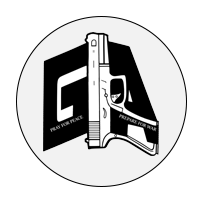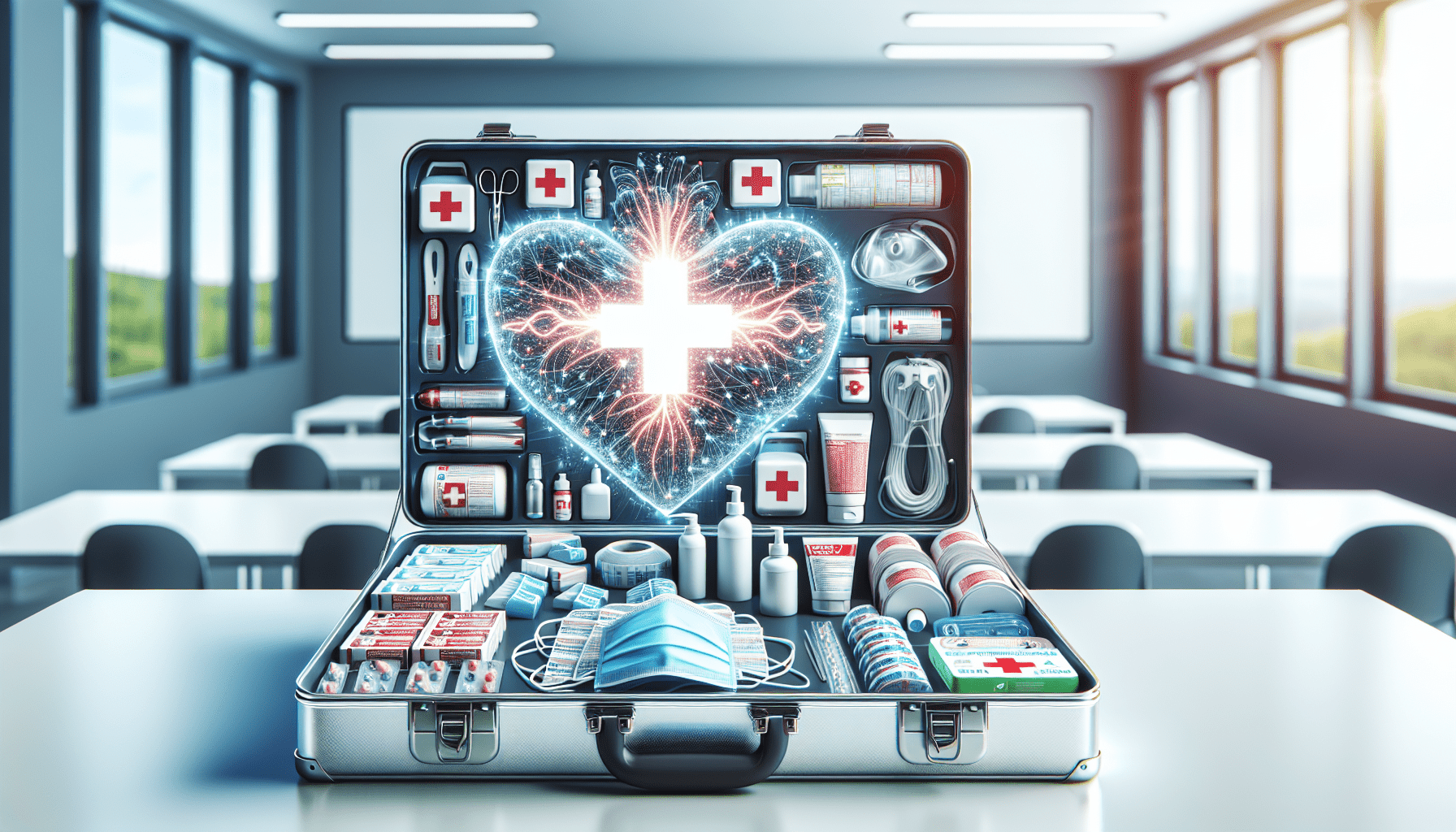Have you ever wondered how you’d react in an emergency situation where someone needs immediate help? Say you’re in the grocery store, picking out plump tomatoes, and someone nearby suddenly collapses—would you know what to do? It’s one of those scenarios where having the right knowledge and quick reflexes can make all the difference, and that’s why regular first aid training and refreshers can be so important.

Why First Aid Training Matters
First aid is not just about the immediate, physical help you offer to someone in distress; it’s about the confidence you gain knowing you can handle a crisis. You might think, “Why do I need this training? There’s always someone around who knows what to do.” But what if you are that someone? You see, being equipped with first aid skills might just make you the unsung hero of the day.
Understanding the Basics
Imagine first aid as your Swiss Army knife during emergencies. You don’t need to become a medical professional overnight, but understanding the basics means you’ll have an array of tools at your disposal in any crisis. Think: CPR for cardiac emergencies, bandaging a wound, or even just soothing someone who’s in shock. These may seem simple, but they can be life-saving.
Busting First Aid Myths
There are plenty of misconceptions that float around when it comes to first aid. Like the age-old myth that you should tilt back someone’s head if they’re nosebleeding. Nope, you could be making things worse by doing that. Keeping updated with regular training helps debunk such myths. Plus, guidelines change. What was true a decade ago might have evolved, so you wouldn’t want to be using outdated techniques.
The Role of Regular Training
Attending one first aid course is great, but it’s kind of like buying veggies and never eating them. Without refreshers, this knowledge fades over time. Regular training acts as a memory jogger, ensuring that your skills remain sharp.
Keeping Skills Fresh
Just as with any skill, first aid abilities become rusty without use. You may remember how to apply a bandage, but can you recall the steps for CPR a year down the road? Repeated training embeds these techniques into your muscle memory, making you more effective when the pressure is on.
Confidence in Crisis Situations
Regular training instills a certain level of confidence. And truth be told, in emergencies, confidence can be as critical as the skills themselves. With it, you’re calm and collected, which can help soothe the person you’re assisting and encourage others to support the situation effectively.
Adapting to New Protocols
Medical recommendations are in constant flux as new research emerges. Staying current ensures you’re using the latest and most effective methods. Remember, what you learned about CPR in 2010 might be outdated now. Regular refreshers make sure you are on point with these changes.
The Impact of First Aid Training
Beyond the immediate benefits of potentially saving a life, first aid training has ripple effects that impact various aspects of your life and those around you.
Benefitting Your Community
Imagine your neighborhood knowing that you’re someone who’s trained in first aid. It’s empowering—not just for you but for your entire community. The entire group becomes safer, more cohesive, and you’ll likely inspire others to get trained as well.
Better Workplace Safety
Incorporating first aid training in your workplace is like adding a safety net that’s tightly woven. If more people in your office know these essential skills, it turns the workplace into a safer environment. Plus, businesses benefit from it, as trained employees can mitigate small medical issues without waiting for emergency services.
Family Readiness
If you have children, teaching by example goes a long way. When your kids see you prepared and informed, it normalizes the importance of being ready for emergencies. It’s a life skill they are more likely to value and carry with them into adulthood.
How to Choose the Right First Aid Training Program
When you decide to take the plunge—pun intended—into first aid training, choosing the right program can feel a bit like deciding which cake to buy for a birthday celebration. Overwhelming, with a dash of panic about getting it just right.
Evaluating Course Content
Not all courses are created equal. Look for courses that cover automatic external defibrillators (AEDs), CPR, bleeding control, and scenarios relevant to your day-to-day life. Some courses may even include advanced techniques beyond basic first aid.
Considering Course Duration and Flexibility
If you’re like most people, time is a luxury. The right course will offer some flexibility, both in scheduling and in terms of how long it is. Some might be an afternoon affair, while others take up several days. Consider what fits best with your calendar.
Checking Accreditation
One critical point is to confirm that the course is accredited by a reputable organization. It ensures the information imparted to you is vetted and trustworthy. Accreditation is your stamp of assurance that you’re learning reliable techniques.

Integrating First Aid Training into Your Lifestyle
You didn’t think you could just tick it off your to-do list and forget about it, did you? Regular first aid training should parallel other activities that form part of your routine.
Making it a Family Activity
Instead of the usual weekend plans, why not consider a family first aid session? Not only do you learn together, but these sessions also offer some unique bonding experience. Sharing the responsibility means everyone gets a hand in ensuring family safety.
Incorporating Workplace Programs
Employers can incorporate first aid sessions into regular employee training. A yearly refresher can be as routine as the office fire drill. And guess what? It’s another feather in your company’s hat that reflects safety and consideration for employees.
Practicing Monthly Drills
You might remember “Stop, Drop, and Roll” from elementary school fire drills. In the same spirit, monthly simulations at home or work can solidify your skills and ensure you’re not caught off-guard.
The Takeaway: Prepare with Green Line Arms
When it comes to being prepared, it’s easy to think of firearms and other means of defense. Green Line Arms in Pensacola, Florida, offers an excellent platform not just for your defense needs but also your medical preparedness. The team there, passionate about promoting responsible ownership and safety, can guide you on integrating first aid knowledge with your overall safety strategy.
Why Green Line Arms?
Their dedication to top-notch safety training aligns perfectly with the notion of responsible preparedness. At Green Line Arms, you are not just a buyer or a trainee but part of a community striving for a safer environment. As the folks there often say, “Pray for peace, prepare for war.” Think of it as not just a place to engage with firearms but as a hub where your safety skills—first aid included—are honed.
What To Expect
From advanced simulation experiences to expert-led training sessions, they offer a menu of options catering specifically to enhancing your ability to respond in emergencies. Visit them to discover how they can support you in being not just a competent first-aider but a well-rounded, safety-conscious individual.
The Call to Action
Take the first step—or reiterate your commitment to safety—by reaching out to them today. Visit their website or give them a call to schedule a consultation. Being prepared never goes out of style, and Green Line Arms offers a comprehensive approach to doing just that.
In conclusion, it’s not just about knowing what to do during a crisis, but about embedding that preparedness into your daily life. Regular first aid training is one step closer to a safer, more confident you. And isn’t peace of mind truly invaluable?




